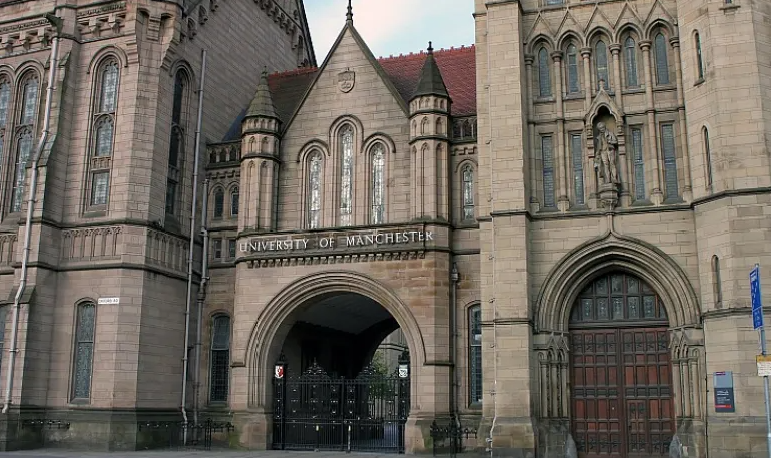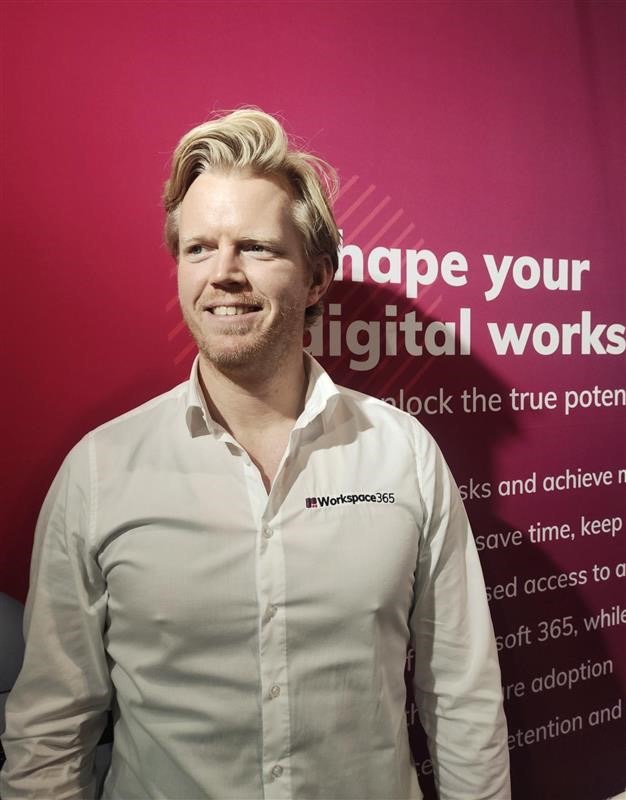Insights
University of Manchester’s Innovation Factory creates another 10 new hi-tech businesses in 2022
Ten new, Manchester-based biomedical, science and engineering companies have been created over the past year by The University of Manchester Innovation Factory.
These businesses are all producing cutting-edge technology and services which will benefit the entire world and put Manchester on the map as a leader in innovation.
The 10 new businesses for 2022 are:
- Apini Therapeutics Ltd – Novel Small Molecule Therapeutics for the treatment of inflammatory diseases without induction of immune suppression
- Holiferm Ltd – Fermentation technology with initial focus on biosurfactants
- Imperagen Ltd – An AI prediction of enzyme optimisation
- Mi-Trial Ltd – Clinical trial companion system and app
- Music in Mind Remote Ltd – Digital platform for providing music to people with dementia
- Nexsys Ltd – Online platform for water management and planning
- Polynerve Ltd – Synthetic polymer nerve conduit
- Recon2 Ltd – System for measurement of recycled plastic content in packaging
- Sebomix Ltd – A rapid, non-invasive test for the diagnosis of Parkinson’s Disease and a wide range of other indications
- Urban 360 Ltd – Intelligence to improve urban sustainability
In addition to forming these new IP-rich businesses, the Innovation Factory, which drives the commercialisation of intellectual property originating from The University of Manchester (UoM), secured an impressive £6.4M of first investment into Manchester-based spinout companies as well as £4.9M in UoM licensing income.
With a team of 44 and drawing on the research of 3,500 university staff in the Faculty of Science and Engineering, the Innovation Factory assesses and scopes research with IP potential and advises start-ups on critical legal, investment and asset management issues as they scale up.
Innovation Factory Chief Executive Andrew Wilkinson has, in his first three years in post, overseen 32 IP-rich spin outs. This includes nine in 2019-20, 13 in 2020-21 and 10 in 21-22. He has also generated licensing income of £13.85M from third party non-spinout licensees (£1.55M 2019-20, £7.4M 2020-21, £4.9M 2021-22).
2021-22 has seen more than £26M of follow-on investment going into previous spinouts.
Andrew Wilkinson said: “Over the past three years the Innovation Factory has worked hard to meet our ambitious targets and fulfil our commitment to create positive social, environmental and economic impact by helping UoM academics and student inventors commercialise their research.
“We are proud to help the nation’s most visionary researchers and scholars transform their ideas and theories into a form that can be used to benefit people from all parts of the world. Manchester has always been the birthplace of great ideas and that pulse of innovation is as strong as ever.”
Last year, the Innovation Factory was also instrumental in facilitating the formation of Northern Gritstone through a partnership with the Universities of Leeds, Manchester and Sheffield.
Northern Gritstone is an investment vehicle determined to be one of the largest investors into academic spinouts in the UK.
Chaired by former Goldman Sachs chief economist and treasury minister Lord Jim O’Neill, NG has raised £215 million and will complete a first close of more than £300M in late 2022.
From Jan 2023, Wilkinson will also be the President of SixU, the body made up of the six most successful commercial IP universities in the UK – Manchester, Oxford, Cambridge, UCL, Imperial and Edinburgh.

KPMG to support Manchester’s tech sector with £5.5m office redesign to spark innovation
KPMG UK has announced it will invest £5.5 million in its flagship Manchester office at One St Peter’s Square to enhance the services it offers to businesses in the region and provide improved working spaces for colleagues.
As well as redesigning the office space, the firm will build Ignition North, a new 25,000sq foot collaborative hub designed to spark innovation and support digital transformation on the site.
The new centre will be home to KPMG’s Ignition team. Along with technology experts from across KPMG, the Ignition team will support clients from the start of an idea through to the design, prototyping and development of solutions using a combination of methods, tools and technologies.
The new Ignition Centre, which will open in Spring 2023, will include the Discovery and Insights Centre, a state-of-the-art facility to showcase the latest data & analytics and artificial intelligence tools, and The Lab, where teams of 10-30 can translate ideas into specific strategies, solutions and plans.
Ignition North’s design prioritises meetings and presentations, as well as spaces for clients and colleagues to informally gather. The refurbished office space will take into account a new more flexible approach to working.
KPMG’s Manchester office is currently home to 1,200 employees, including more than 260 people in technology roles. Ignition North will create further jobs in the city as the firm recruits to support its new offering.
Jon Holt, chief executive of KPMG UK, said: “Manchester’s thriving tech centre is a hive of activity and the city has really established its reputation on the world’s stage as a leader in this field.
“Our new Ignition Centre in Manchester will support a huge range of incredible businesses in the region and more widely, bringing together insights, people, and technology to accelerate innovation and help them solve some of their most complex problems.”
Mayor of Greater Manchester Andy Burnham said: “This investment, which will create new jobs in our digital and tech sectors, is a real vote of confidence in Greater Manchester’s thriving innovation economy. We’re the fastest-growing digital and tech hub in Europe, and Ignition North will be part of an expanding network of businesses and working spaces across our city-region driving that growth.”
Warren Middleton, Manchester Office Senior Partner at KPMG UK, added: “Bringing Ignition to Manchester really demonstrates the potential and growth trajectory of the office and the region more broadly. I am delighted we can make these significant changes and commitment to our Manchester office, supporting our own growth and that of our clients in the region.”

Netherlands based tech firm Workspace 365 chooses Manchester for its UK Headquarters
A new digital workspace platform from the Netherlands has officially launched in the UK, choosing to base its UK operations in Manchester.
Workspace 365 simplifies business software, empowering employees to be more efficient and enabling businesses to unlock the potential of their teams.
With Spaces in central Manchester operating as its British Headquarters, Workspace 365 allows users to access all their software requirements via one adaptive visual dashboard, either on their computer or their mobile device via an app, and boosts productivity by giving each employee up to 30 minutes of their working time back per day.
Erik Nicolai, CEO and co-founder of Workspace 365, said: “Our continued growth in the Netherlands is testament to the increasing organisational need for user-friendly, bespoke digital workspaces, accelerated by the hybrid working movement in response to Covid.
“Workspace 365 is a unique product which we were keen to launch in the UK to enable British businesses to meet growing employee demand for digital workplace experiences. With its thriving tech ecosystem and talent pool, Manchester was the natural location for our UK headquarters, and we’re excited to be a part of this great city.”
Workspace 365 choosing Manchester as their headquarters highlights the strength of the city-region’s tech capabilities and talent. As the UK’s top tech city outside of London, Manchester is proving to be a first-choice base for tech start-ups, SMEs and growing businesses.
Workspace 365 replaces the traditional computer desktop with a bespoke, employee-centric digital workspace solution. The interface allows users to access the individual pieces of software they need to do their job from anywhere, using any device connected to the internet.
The applications – which will be personalised to each individual user’s needs – are accessible from the one-stop Workspace 365 platform, which means users no longer need to open separate windows for tasks such as word processing, spreadsheets, web browsing or email.
It’s thought that this technology will save each individual Workspace 365 user up to half an hour every working day, giving them more time to focus on core tasks. It will also streamline processes, simplify document management, and increase collaboration and engagement by improving communication, via apps such as Yammer. Workspace 365 will also simplify software adoption and access to information for businesses.
A key benefit of Workspace 365 is its simplified single sign-on, which significantly reduces concerns surrounding password management and makes the product accessible to those with lower IT literacy.
The system, which is already in use in continental Europe, has been built with evolution firmly in mind. New updates are released every three weeks and each user has a personalised dashboard aligned with the specifics of their role, regardless of how it may change. This includes the Hub, a platform on which knowledge can be shared and announcements – both company-wide and bespoke to the employee – are made.
Aimed at medium-to-large businesses with 200+ users, Workspace 365 allows for a smooth transition to the cloud as it integrates technologies into a secure, browser-based workspace available as an app on any device.

Danish Crown to invest over £100m in new Rochdale bacon factory creating 300 jobs
Food giant Danish Crown has revealed a new £100m pork processing plant will open in Rochdale in 2023. This major job-creating investment will boost the region’s manufacturing capabilities.
The factory in Rochdale will offer UK customers pork products produced more sustainably and provide a critical supply of bacon for the UK market.
Danish Crown will invest more than £100m in the 328,000 sq ft processing facility. It will use highly automated production equipment and the latest processing technology to slice and pack bacon and gammon produced to UK welfare and food safety standards.
The facility is due to begin production in the second half of 2023 and will create about 300 specialised jobs once it is fully operational.
The facility will produce over 900 tonnes of bacon and gammon a week and will be 100% powered by renewable energy along with being built to environmental standards, supporting Danish Crown’s ambition to achieve carbon-neutral meat production by 2050.
Heat recovery from the plant’s utility systems will supplement conventional heating sources to heat the office space and provide hot water, while ammonia will be used as a refrigerant to minimise environmental impact. Food waste will be reduced by using bacon offcuts in other products such as sausages, while a circular packaging system for deliveries of pork to the site will minimise packaging waste.
To support sustainability and transparency, Danish Crown will be able to provide customers with the carbon footprint of their products from farm to fork.
The new investment will create Danish Crown’s first production facility in the UK in three years, following the sale of its Tulip subsidiary to Pilgrim’s in 2019.
Jais Valeur, chief executive at Danish Crown, said: “Danish Crown has a long heritage in the UK, bringing British consumers high-quality bacon and pork products for over 135 years. This investment forms the next step in our commitment to the UK market, bringing our customers a reliable, transparent supply of high-quality bacon to help meet demand, produced to high sustainability and welfare standards.
“The future of meat will be based on high-quality products that are as sustainable as possible. We know this is an ambition shared by many of our customers in the UK and with this new factory, we look forward to working more closely with them towards a more sustainable future for food production.”
David Hilton, Business Development Director at MIDAS, Manchester’s Inward Investment Agency, added: “The MIDAS team, in partnership with colleagues at the Rochdale Development Agency and the Department for International Trade are looking forward to continuing work with Danish Crown on recruitment, training and innovation at the new facility in Rochdale.
This significant investment will not only provide a further boost to the local community through the creation of jobs, but it also shows commitment to two of our key growth areas – automation and net zero. “

New Skills Bootcamps launched to connect people with future manufacturing jobs in Greater Manchester
Greater Manchester Combined Authority (GMCA) has awarded £548k funding through the Department for Education to enable three providers to deliver training in future manufacturing skills as part of their Skills Bootcamps scheme.
Manufacturing has been identified as a key sector in the UK due to its contribution to the economy. Locally, manufacturing serves a long tradition in Greater Manchester. However, skills intelligence shows that manufacturing employers are facing growing challenges in regard to upskilling and recruitment.
The new Skills Bootcamps are designed to address these challenges as part of the Government’s Lifetime Skills Guarantee and Plan for Jobs, helping to fill skills gaps identified by employers. They offer a flexible, up to 16-week training course which will build sector-specific skills and guarantee an interview with a local employer upon completion.
The three providers delivering manufacturing bootcamps in Greater Manchester are; 3D 360 who specialise in 3D Printing courses; Rochdale Training who are focusing on welding and Salford City College who are offering training in industrial textiles.
Councillor Eamonn O’Brien, Greater Manchester’s lead for Education, Work, Skills, Apprenticeships and Digital said: “Skills Bootcamps represent such an amazing opportunity for our residents and local businesses. The number of Greater Manchester residents employed in the manufacturing sector is estimated to be between 100,000 – 116,000, representing 7.4 – 8% of the workforce.
“The scheme is designed to help local people gain new skills to pursue exciting careers and places an emphasis on the technical skills welcomed by businesses across Greater Manchester.
“This is not just about manufacturing and technology, it’s about the benefit and value we can provide to our residents and city-region.”
Rochdale Training’s Skills Bootcamp is a five-week training course in welding and fabrication. It’s designed in partnership with engineering employers across Greater Manchester and tailor made for people who wish to retrain and gain practical skills to pursue a new vocation.
Training will enable learners to develop the skills, behaviours, knowledge, and health and safety awareness required to prepare them for working as a welder or fabricator.
3D 360’s Skills Bootcamp will focus on providing an understanding of the capabilities of Additive / Digital manufacturing & Industry 4.0. The courses include:
- Intro to Additive Manufacturing (3D Printing) and 3D CAD Skills Bootcamp (Level 3)
- Digital Manufacturing and Industry 4.0 Skills Bootcamp (Level 3)
- Advanced Additive Manufacturing (3D Printing) Skills Bootcamp (Level 3/4)
Salford City College Group’s Production Sewing Machinist Skills Bootcamps course has been co-designed with UK Fashion & Textiles Association, to give learners the skills and knowledge needed to start a career in production sewing industry. The rejuvenated textiles industry is enjoying a renaissance, with manufacturers in fashion, interior design, health, automotive and other sectors requiring ethically sourced products to meet demand in a fast-growing industry. The course will suit residents in Greater Manchester who are:
- Seeking entry to an innovative sector and understand manufacturing as the foundation for a career
- A returner to the industry
- Seeking a career change
- A Sewing enthusiast, wishing to monetise their knowledge by upskilling and progressing to work as a freelancer
Jill Nagy, Chief Executive at Rochdale Training, said: “This is an exciting project for Greater Manchester residents and employers. The training will allow people to re-train or upskill for a sector that needs a skilled workforce. On completion of the course, learners will have gained the valuable skills necessary to progress on to full-time employment, an Apprenticeship, or further study in the sector.”
Lee Fogg, Technical Director at 3D 360, said: “3D 360 is delighted to be partnering with Greater Manchester Combined Authority to deliver Skills Bootcamps tailored to support the Manufacturing industry to build technical capability. 3D 360 are experts in 3D Printing, 3D CAD, digital manufacturing integration and R&D.
“All 3D 360 training courses teach industry transferable skills sets which focus on addressing regional skills gaps within the new emerging digital skills sectors.”
Victoria Kielty, Salford City College Group’s Head of Centre for Pendleton College and Future Skills, said: “Salford City College Group are delighted to be working in partnership with UK Fashion & Textiles Association to meet the skills needs of the sector with our new Production Sewing Machinist Skills Bootcamp. We are supporting employers in Greater Manchester with the recruitment of new staff and working with our learners to provide the foundations of a rewarding career. The partnership will contribute to our city’s distinguished legacy in the textiles industry.”
Skills Bootcamps are completely free for individuals looking for a career change, new job opportunity or wanting to upskill as the courses are fully-funded. Large employers looking to upskill their current staff will contribute 30% of the cost for their staff members upskilling. Small or medium employers (SMEs) will contribute 10% for their staff members upskilling.
Skills Bootcamps will focus on supporting individuals across priority groups including:
- Low paid workers
- The unemployed or out of work
- Veterans
- Ex-offenders
- Women
- Ethnic minorities
- The over 50s
- Those returning work after a break/maternity leave
- People living with a health conditions or disabilities
To apply for Rochdale Training’s Bootcamps please visit: Skills Bootcamp in Welding – Looking for Work | Rochdale Training
To apply for Salford City College’s Bootcamps please visit: Production Sewing Machinist – Salford City College (salfordcc.ac.uk)
To apply for 3D 360’s Bootcamps please visit: Manchester: DfE Skills Bootcamps – 3D 360 Ltd (3d360printer.co.uk)
For more information about Skills Bootcamps please visit: Skills Bootcamps – Greater Manchester Combined Authority (greatermanchester-ca.gov.uk)

North West chemical manufacturer LCC secures £2.2m to supercharge growth after relocating to Wigan
Chemical manufacturer LCC has raised £2.2m of investment from a panel of regional investors, to expand its team and continue its global operation from the UK following its decision to move its headquarters to Wigan.
Originally born out of the University of Liverpool, LCC manufactures complex chemical components, which are used to test and create new drugs.
LCC counts 11 of the world’s top 20 pharmaceutical companies as repeat customers, who rely on LCC’s components to help fight a range of diseases and conditions, including cancer, Alzheimer’s, dementia, pain and respiratory illnesses.
The funding round was led by the new GMC Life Sciences Fund By Praetura, which consists of Greater Manchester Combined Authority, Cheshire and Warrington Local Enterprise Partnership, Bruntwood SciTech and Manchester’s Praetura Ventures.
The investment follows LCC’s decision to move its headquarters to a new office space in Wigan, which LCC hopes will help boost regional jobs for chemistry graduates and senior talent in the Greater Manchester region.
LCC has also hired Mark Jones as its head of chemistry. After time at AstraZeneca and running his own company, Mark is now leading LCC’s implementation of automation and digitalisation to increase production efficiency, with plans to take LCC’s current monthly production capacity from the hundreds into the thousands of new products.
LCC will use the money raised from the GMC fund and fellow investors to increase its presence in the US, which currently accounts for 80% of its customers and revenue. This will coincide with additional hires across LCC, including in business development, production and operations, with 50% headcount growth targeted by the end of 2023. This investment will give LCC a chance to showcase Greater Manchester’s Life Science expertise on a global scale.
In addition to the GMC funding, Deepbridge Capital contributed £1.2m to this round, alongside Maven Capital Partners, who added £250,000 through the Northern Powerhouse Investment Fund of which they manage the equity fund on behalf of the British Business Bank.
Paul Colbon, founder and CEO of LCC, commented: “If a pharmaceutical company gets delayed when releasing a major drug, it can cost that company upwards of $50m a week in lost revenue, which is why it’s incredibly important that we can scale at pace. With this latest investment, we can now ramp up production and delivery of our specialist chemical components, and I’m incredibly proud that we’ll be doing this from the North West, a region which has given us so much.”
David Foreman, managing director of Praetura Ventures, added: “We have been hugely impressed with LCC’s traction and the company’s ambition to date. To now have the backing of a dedicated regional life sciences fund, which was created for businesses that are committed to the region’s future, is a huge win for all involved, another example of the North West blazing a trail in the chemical manufacture space.”
Dr Savvas Neophytou, Chief Investment Officer at Deepbridge Capital, concluded: “We’re delighted that the GMC Life Sciences Fund By Praetura and Maven continue to work with us to support LCC; a company which excellently showcases the North West’s life sciences expertise on a global stage. It’s great to have another North West-based fund that compliments the Deepbridge Life Sciences EIS fund.”

